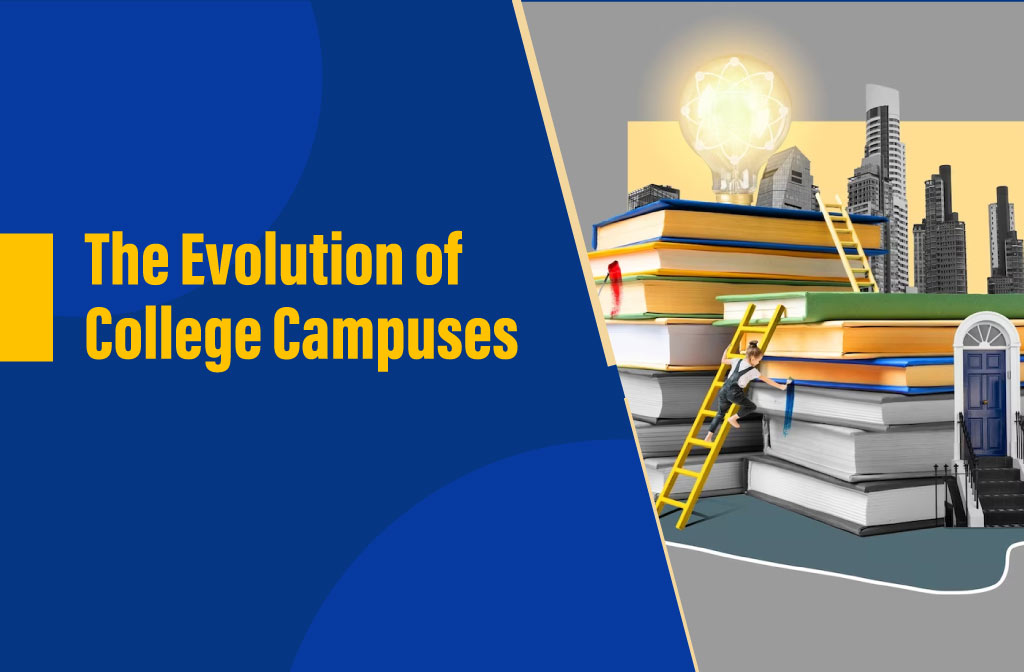
From the blackboards to smart boards, the evolution of college campuses can be seen through infrastructure, facilities, faculties, and management. However, digital transformation has greater influence and higher benefits when compared to traditional learning campuses. The best engineering college in Coimbatore also understands these evolutions, makes necessary transformations for the student’s vision, and offers a better learning experience. The use of technology, software, and learning processes, from assignments to real-time projects, discussions, learning from videos, and smart board presentations, is now starting to grow. In this blog, you can read about the challenges of traditional learning and the benefits of incorporating digital transformation.
Challenges on traditional learning campuses:
In today’s evolving educational landscape, the main challenge is the rise of online learning, which disrupts the model of classroom-based instruction. Online learning is increasingly advantageous in the period of the pandemic, where it is the best option for flexibility, accessibility, and affordability.
Another challenge for conventional learning is that it needs to adapt to the transformation regarding students’ needs and expectations.
Students are more diverse and tech-savvy, and their education is expected to be customized, engaging, and relevant to their career or future objectives.
Therefore, universities are expected to have a change in teaching methods and curriculum that focus on the changing demands of today’s job market.
The cost of education is also another metric where some students may feel a financial burden. This also affects the necessities, where colleges need to give attention to the increased competition for funding and resources that will influence the quality and accessibility of education.
Why is digital transformation in education getting more attention?
Online education is becoming increasingly popular as it offers students easy access to courses and programs from anywhere at any time. This flexibility and accessibility made it possible for students to achieve professional goals without the constraints of time and location. Affordable and available courses and programs at lower costs compared to traditional learning institutions. Let’s discuss three different perspectives for students, teachers, and colleges.
For students, digital transformations help improve the overall learning experience, support key skills in subject review and collaboration, manage and balance college and personal life, and increase accessibility.
For teachers, improved collaborative experience, ease of balancing work and life, focus on student requirements, and addressing student learning styles are some possible pros that digital transformation provides.
Now the top 10 colleges in Coimbatore incorporate the digital session that helps them to increase competitiveness, enlarging the student and faculty recruitment protocols, and permitting data-driven decision and evaluation. Along with that students can receive the recording sessions of lectures, which will help them for future reference.
Virtual teaching method:
Workloads may have been minimized, and work-life balance can be improved with the use of virtual teaching technologies. This gives teachers more time to interact with students personally. Students may receive assignments and course materials electronically as part of this digital improvement to conventional classes.
The management of student assignments, grading, and text-based discussions can all be handled via learning management systems. However, the digital transformation goes beyond simply being a supplement to the conventional classroom. Both live and pre-recorded instruction can and does take place in a digital format.
Hybrid learning method:
Hybrid learning describes courses that combine physical and virtual education with online components that students can complete at their own convenience. In this way, students can benefit from both the traditional educational methods and the collaborative environment of a college classroom. But it also enables students to work independently, participating in discussions and tasks remotely.
Video Session Benefits for the College Campus:
In hybrid and flipped classroom environments, lecture capture and other video lecture formats are used. The ability to produce their own video content gives students the freedom to complete tasks, share course materials with other students, and offer reviews.
Video is a common medium for communication outside of the classroom in universities and colleges. Video, both live and recorded, is useful for university advertising employment, the application procedure, and contact with alumni.
Every aspect of the university experience is enhanced by video; thus, a successful digital transformation depends on the quality of the video. This refers to video that is of a high standard, simple to access, uninterruptedly transmitted, watchable on a variety of devices, and available with excellent captioning.
Conclusion:
In the future, virtual campuses are like stepping into a prestigious global university, but traditional online education is like gazing through a window. Students frequently attend college to engage in experiential learning, such as discussing with others who share their interests, working with researchers, or even just having a fun social life. For students to have immersive learning and life experiences, virtual campuses combine the greatest elements of offline and online access learning. The top 10 engineering colleges in coimbatore ensure facilities that offer both offline and online with sophisticated infrastructure so students can experience a better college life.








